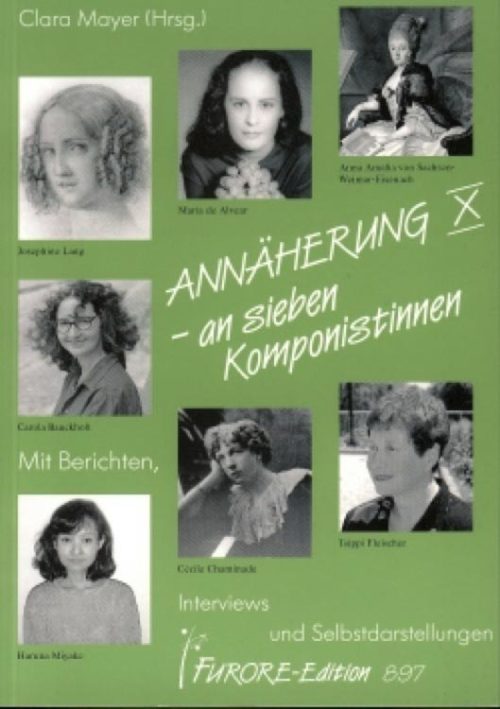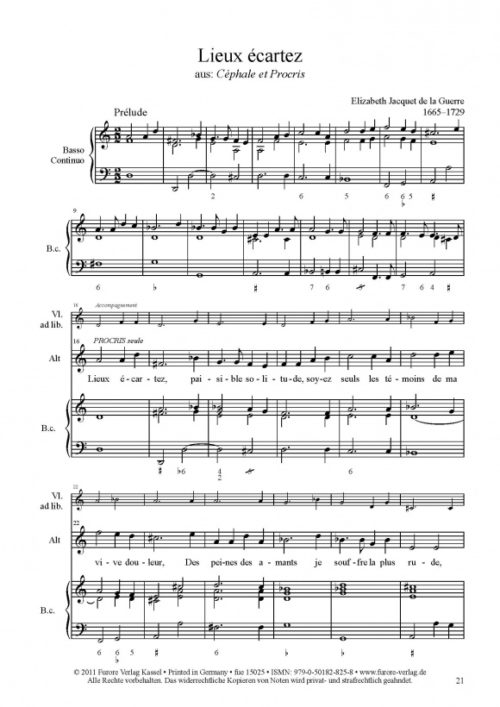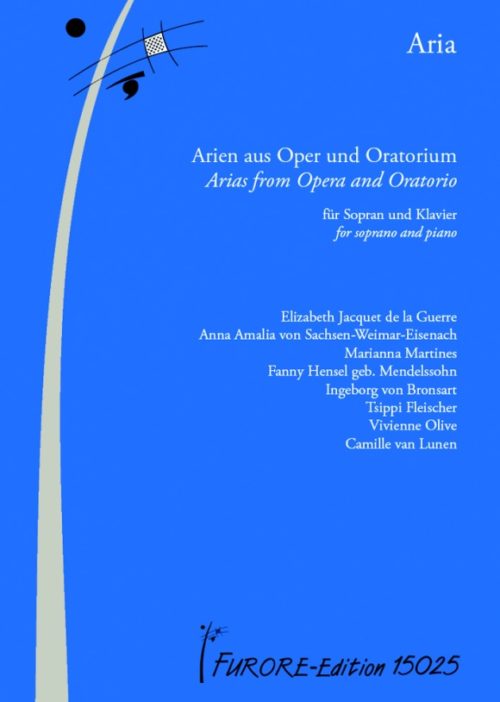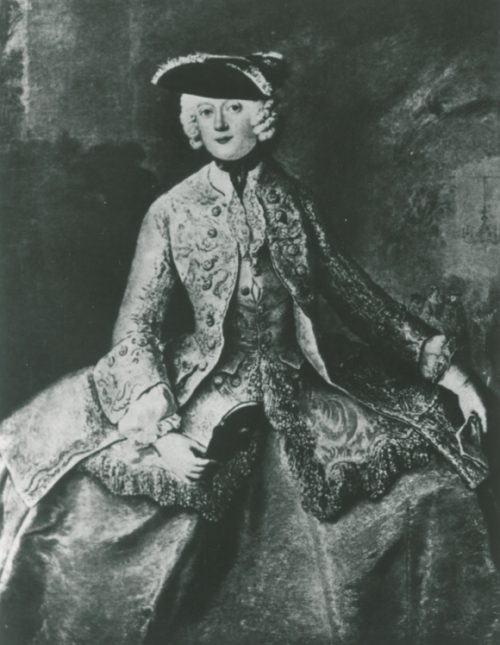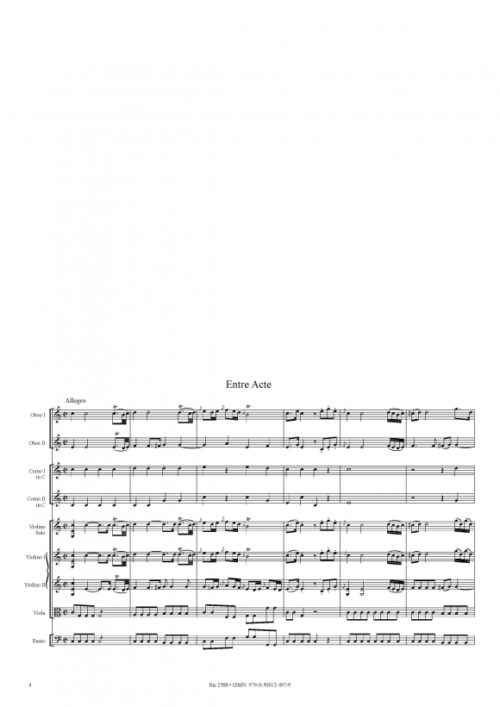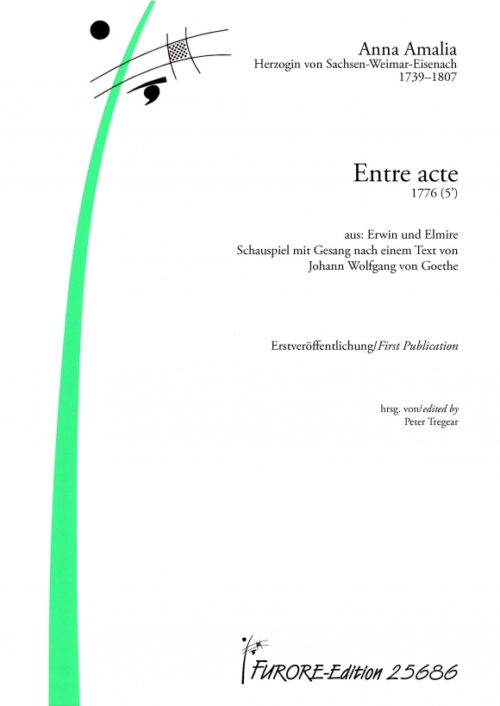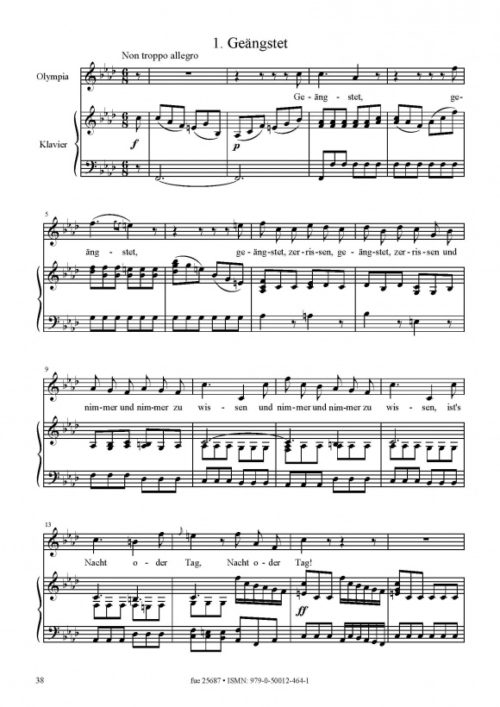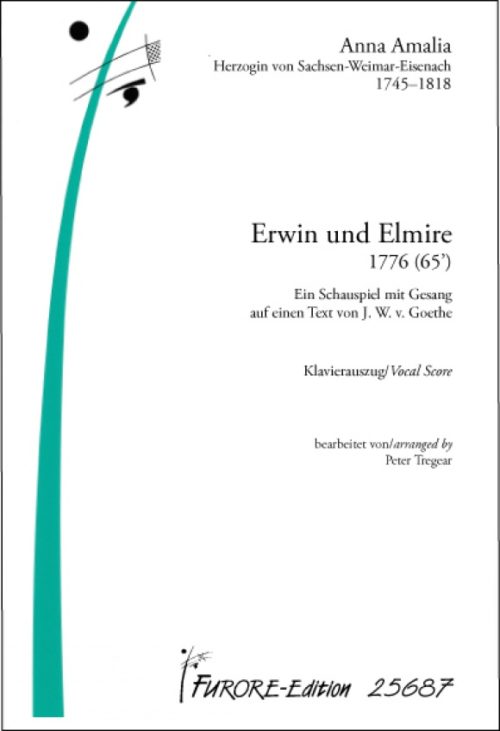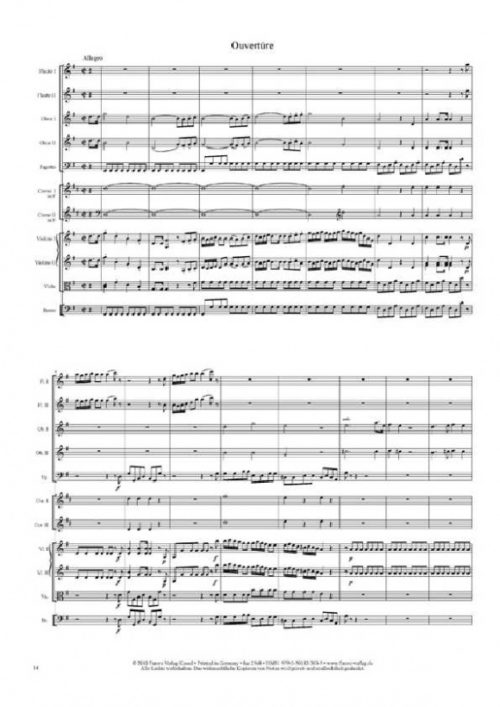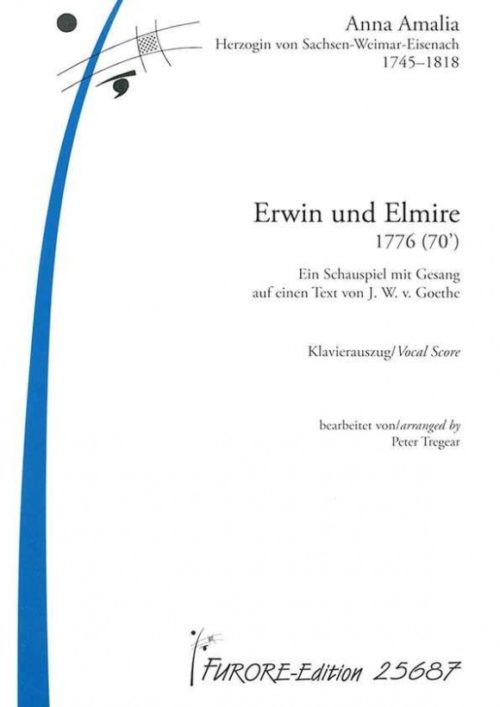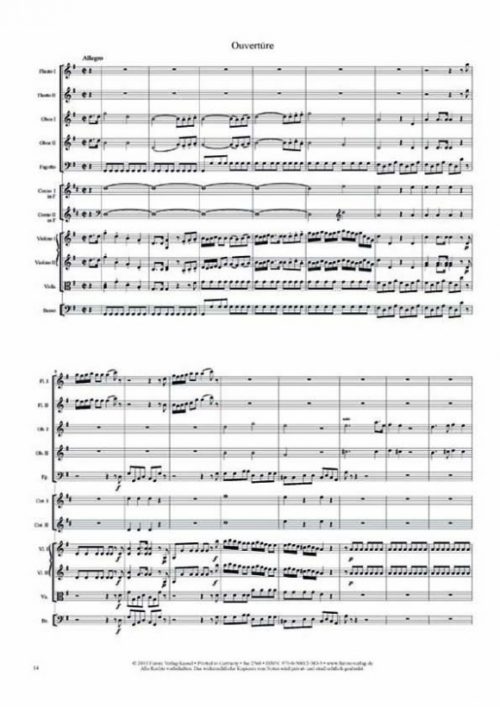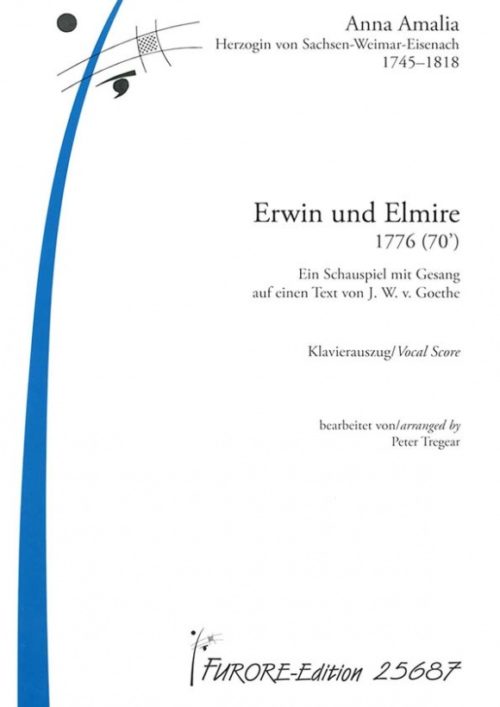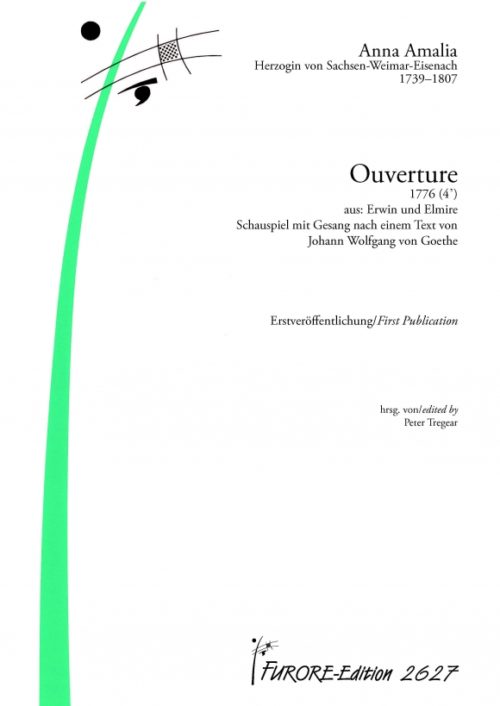Anna Amalia, the Dowager Duchess of Saxe-Weimar-Eisenach, was a formidable political figure who was also a fine composer. The fifth of thirteen children born to Karl I of Braunschweig and Philippine Charlotte, a sister of Frederick the Great, she was born on 24 October 1739 in Wolfenbüttel. She received an extensive education across the sciences and humanities, as well as in dancing, piano and composition. At one stage she had been considered as a possible wife for the Prince of Wales, later George III of England. Instead on 16 March 1756, aged sixteen, she married the eighteen-year-old Ernst August Konstantin, Duke of Saxe-Weimar. His untimely death two years later left Anna as regent, a position she fulfilled with considerable success until 1775, the year her eldest son came of age. In the process she became the most famous female ruler of the German Enlightenment. Goethe’s arrival in Weimar in November 1775 coincided with her partial withdrawal from political life. With the accession of her son, Carl August, to power, she could dedicate herself to her private passions; theatre, music, literature, and conversation. So it was, soon after Goethe had arrived, that Anna seized the opportunity to provide a new setting of Goethes Erwin and Elmire. Goethe’s designation Schauspiel mit Gesang was altered by the composer to become an ‘Opera’ in two acts, a substantial score of some 241 pages of manuscript. The scale and style of the work suggests that the Duchess wanted to build both upon the principles of Christoph Willibald Gluck’s so-called ‘Reform’ opera, as well as the emergent Singspiel tradition. Anna Amalia drew upon models from both opera seria, opera buffa, and folk song, but the result was no mere musical potpourri. Rather – in the best tradition of the Singspiel – she created a successful dramatic whole, in which all four protagonists were characterised as much by the stylistic and generic nuances provided by the musical accompaniment as by the content and register of the words they speak. Anna Amalia spent the years from 1788 to 1790 in Rome and Naples; a highly unusual act for a widowed protestant Duchess. There she took great pleasure in art and sightseeing. Once back in Weimar she retreated into private life and died on 10 April 1807.
-
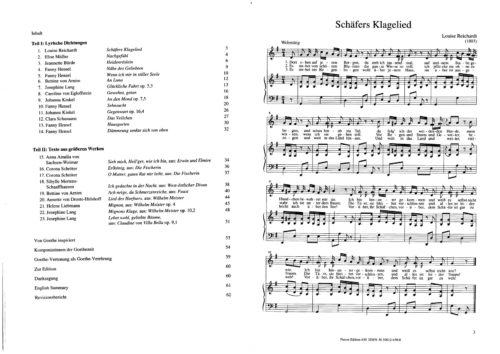
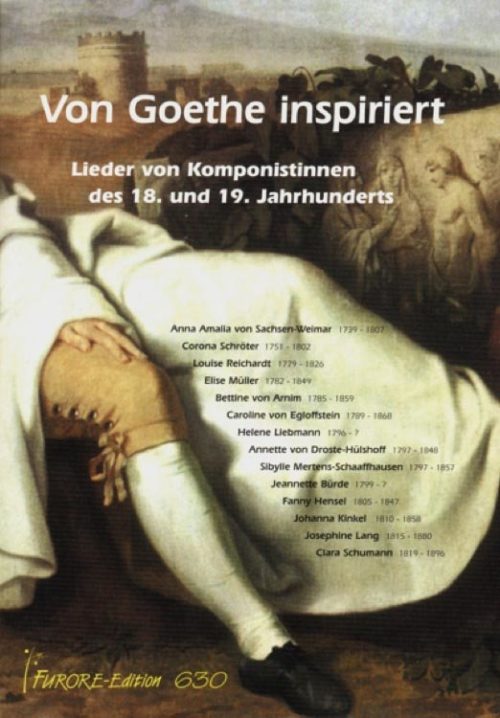
fue 6300
Inspired by Goethe. Songs by women composers of the 18.th and 19.th Centuries
Anna Amalia, Herzogin von Sachsen-Weimar Annette von Droste-Hülshoff Bettine von Arnim Caroline von Egloffstein Corona Schröter Elise Müller Fanny Hensel, geb. Mendelssohn Helene Liebmann Jeanette Bürde, geb. Milder Johanna Kinkel, gesch. Mathieux, geb. Mockel Josephine Lang Louise Reichhardt Sibylle Mertens-Schaafhausen
-
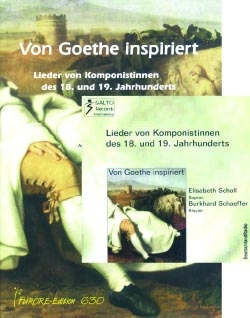
fue 9997
Music book + CD: Inspired by Goethe. Songs by women composers of the 18.th and 19.th Centuries
Anna Amalia, Herzogin von Sachsen-Weimar Annette von Droste-Hülshoff Bettine von Arnim Caroline von Egloffstein Corona Schröter Elise Müller Fanny Hensel, geb. Mendelssohn Helene Liebmann Jeanette Bürde, geb. Milder Johanna Kinkel, gesch. Mathieux, geb. Mockel Josephine Lang Louise Reichhardt Sibylle Mertens-Schaafhausen

